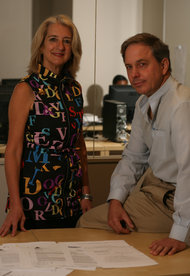That was probably a common response to the news last week that the Justice Department had filed a civil suit against Standard Poor’s, one of the two big credit ratings agencies that were so central to the mortgage boom and bust. The department said that S. P. misled investors by presenting its ratings as the product of objective analyses when, the suit says, they were more about generating revenue to the firm. S. P. denied the allegations, saying it was prepared to go to trial.
Many people have been disappointed that S. P. and Moody’s Investors Service, the big and powerful companies that are supposed to assess the creditworthiness of bonds, have escaped culpability. Not only do these companies still hold sway in securities markets, they’ve also hung on to their lush profits from the glory days of mortgage origination. During 2005 and 2006, for example, Moody’s made $238 million by rating complex mortgage instruments. Investors who trusted those ratings lost billions.
Given that the financial crisis began unfolding more than five years ago, it is discouraging to see how entrenched the large and established ratings companies remain. Ratings are still used to determine bank capital requirements, and investors rely heavily on them.
Over the years, lawmakers have tried to open up the duopolistic world of ratings agencies to greater competition and, therefore, better performance. Legislation in 2006 encouraged the Securities and Exchange Commission to let new companies into the ratings club. The commission set up the Office of Credit Ratings to register new entrants and to monitor all participants’ activities. Today, 10 credit ratings agencies are recognized by the S.E.C.
But gaining regulatory approval to join the ratings arena is exceedingly burdensome. That, at least, has been the experience of RR Consulting, a firm with a stable of highly respected credit analysts and an enviable record of having predicted the mortgage mess in 2003.
RR has been trying to get recognition as a credit rating agency since 2011. Frustrated by what it perceives as roadblocks erected by the S.E.C., its executives are beginning to wonder if the commission really wants increased competition.
The firm was founded in 2000 by Ann Rutledge and Sylvain Raynes, experts in structured finance who previously worked at Moody’s. It is a small shop, with seven employees, but its clients include investors, small and medium-size banks, financial regulators and other institutions. RR’s specialty is risk measurement for all asset types.
RR’s approach differs from traditional ratings agencies because, in addition to being able to rate new issues, it analyzes risks in securities that are trading in the secondary, or resale, market, after they are issued. By contrast, S. P. and Moody’s became known for giving mortgage securities high ratings and downgrading them only when defaults were soaring.
“In the primary market, everyone prices a security around the credit rating,” Ms. Rutledge says. “In the secondary market, no one cares about the credit rating; what they want is valuation. We connect primary-market ratings with secondary-market valuations.”
THE RR distinction between a rating and a valuation, however, seems to pose a problem when it comes to getting S.E.C. approval as a ratings agency, Ms. Rutledge says.
By law, many requirements must be met before a firm can become a ratings agency. Chief among them is that the applicant must provide letters from 10 “qualified institutional buyers” that have used the company’s ratings over the previous three years.
RR has had difficulties with its letters. One was rejected because its writer identified the firm’s work as ratings or valuations, not simply as ratings, Ms. Rutledge says. Another letter failed to pass muster because it was from a German institution that characterized itself as the equivalent of a qualified institutional buyer. When a foreign institution could not get its letter notarized as required — notaries are not as common overseas — it was not good enough for the S.E.C.
And not all clients want to write such a letter for use by the S.E.C. Instead, some said they would discuss the company’s work by telephone. The S.E.C. rejected the idea.
“It’s extremely difficult for us to satisfy the ‘10 qualified institutional buyers’ requirement,” Ms. Rutledge says. “Proof that you’ve done business with them is not enough; it says you must have letters. And they have a suggested text for the letter. When we changed the text slightly they said it was not in conformity.”
Article source: http://www.nytimes.com/2013/02/10/business/credit-rating-club-is-tough-to-get-into.html?partner=rss&emc=rss
